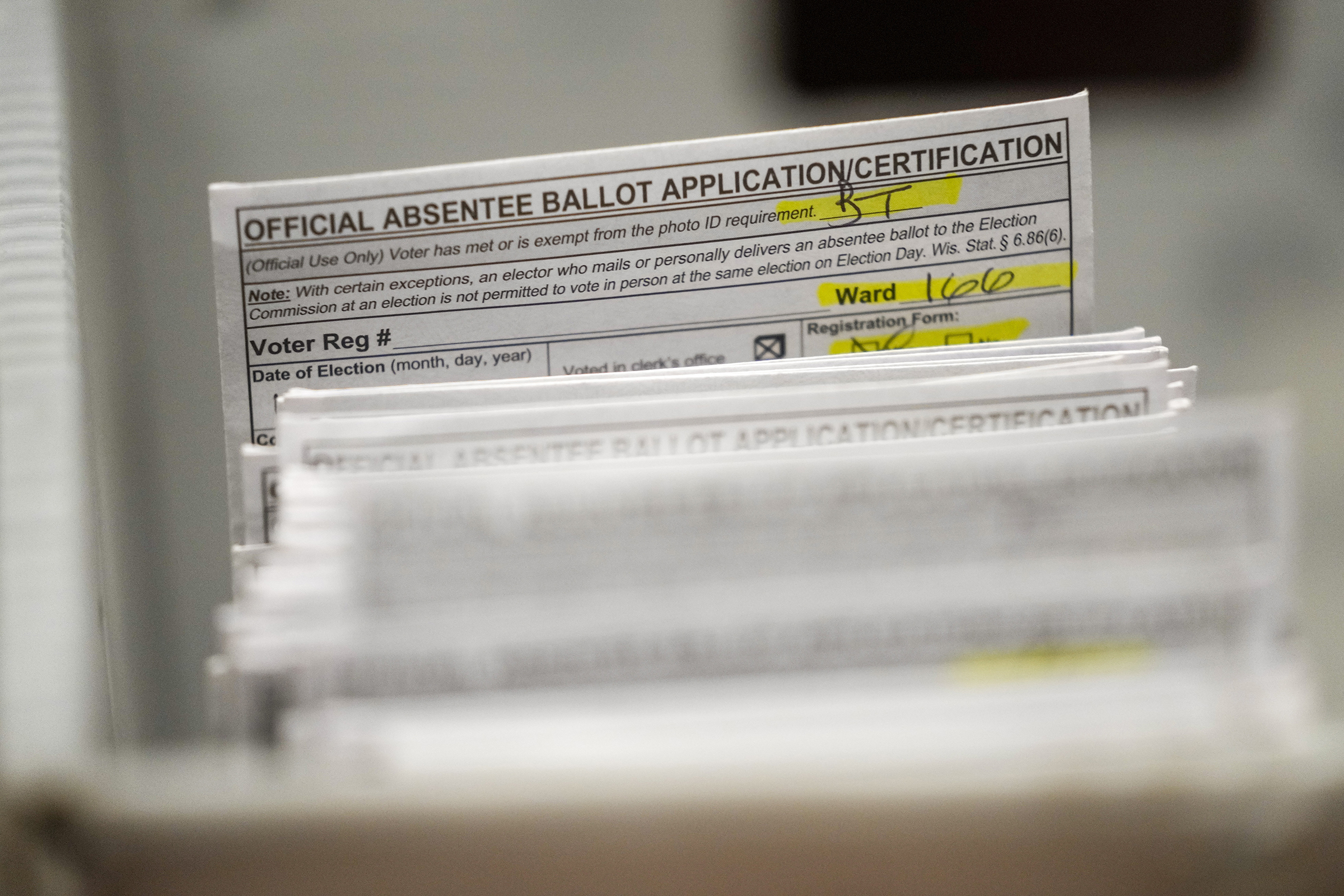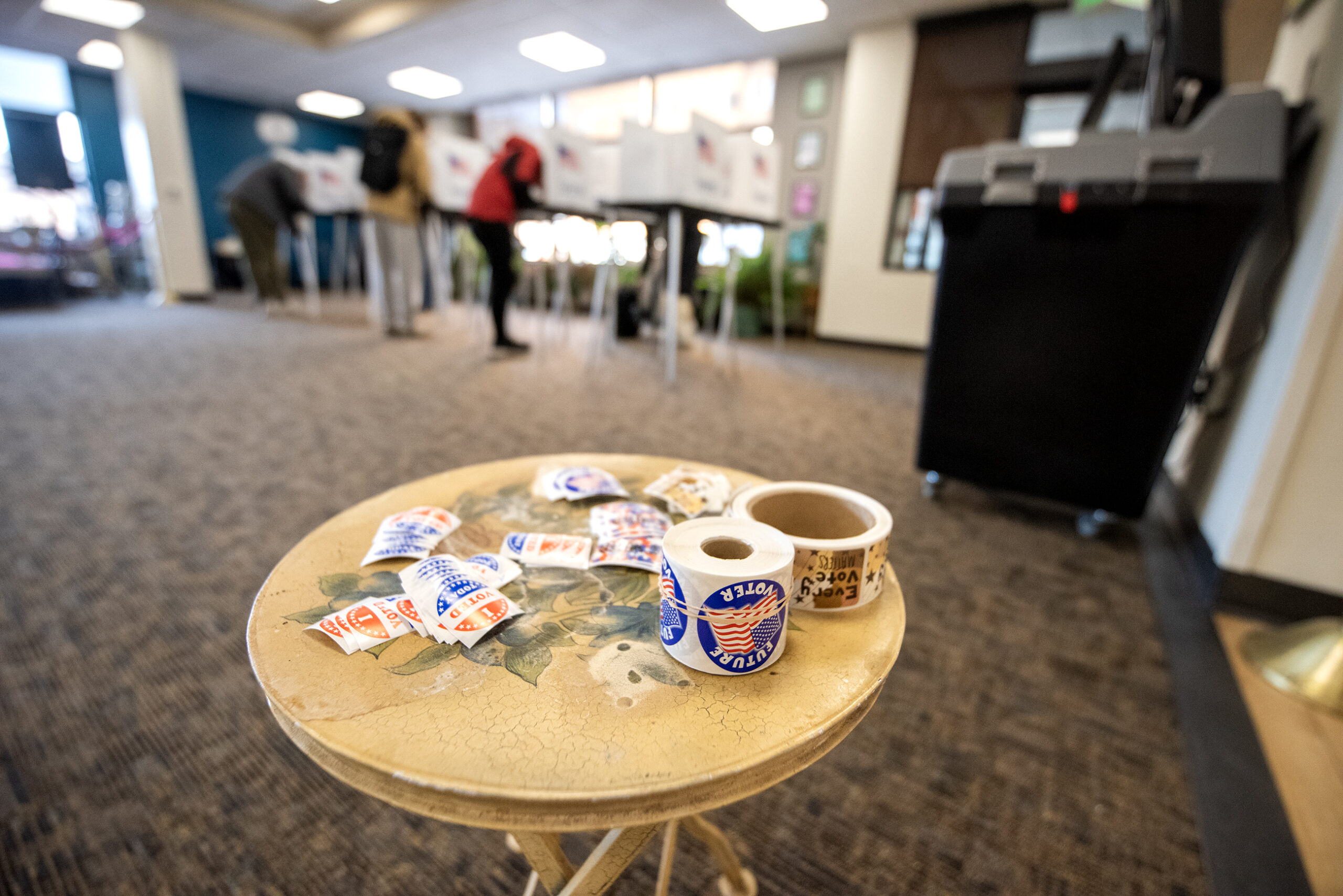A circuit court judge heard arguments Monday about whether to make Wisconsin’s ban on “ballot spoiling” permanent.
The case of Nancy Kormanik vs. Wisconsin Elections Commission was resolved last October with a temporary ban on the practice, in which an absentee voter can request to have their ballot invalidated on or before election day in order to vote again or fix mistakes in their original vote.
The temporary order prohibited the elections commission from “advising, guiding, instructing, publishing, or otherwise communicating information related to spoiling absentee ballots and/or returning absentee ballots to electors” in ways not laid out by state law.
News with a little more humanity
WPR’s “Wisconsin Today” newsletter keeps you connected to the state you love without feeling overwhelmed. No paywall. No agenda. No corporate filter.
The conservative law group that filed the lawsuit has moved to make that ban permanent. In Waukesha County Circuit Court on Monday, the plaintiff’s lawyer argued that ballot spoiling is only allowed under very specific circumstances, and that the state elections commission had illegally expanded the practice.
“Essentially, what this boils down to is the Commission’s position that electors can ‘revote’ after already fully completing the absentee ballot voting process,” said Kurt Goehre, an attorney representing Kormanik.
Goehre said a voter can spoil their ballot if it is still in his or her possession, but that a voter cannot ask to invalidate a ballot after it’s been filed to a clerk.
Attorneys for the Wisconsin Elections Commission, the Democratic National Committee and RISE, a progressive group that organizes young voters, argued that voters should be able to use the best available information when casting their ballot.
“The overarching principle of the election statutes is to advance the will of the electors,” attorney Charles Curtis, representing the Democratic National Committee, argued.
“To allow an elector – when a vote has not been cast yet, when a ballot has not been cast – to say, ‘I made a mistake, and I’d like to obtain a new replacement ballot,’ that does better advance the will of the electorate.”
In August of 2022, the Wisconsin Elections Commission issued guidance to local clerks, who administer Wisconsin elections, outlining procedures and deadlines for spoiling a ballot if a voter committed an error or changed their mind after casting a ballot.
The national conservative group Restoring Integrity and Trust in Elections filed a lawsuit challenging that guidance, arguing that it conflicted with existing state law about how to spoil a ballot.
That led to a temporary injunction against the practice in October of 2022 that has been in place ever since.
“This guidance, to the best of my knowledge, never led to a single suspected instance of fraud or other problems, to votes being lost or anything nefarious,” Curtis, the DNC attorney, argued Monday.
He and the other defendants called for a judgment that would uphold the elections commission’s guidance.
The lawsuit is one of many legal challenges to Wisconsin voting laws moving through state courts.
That includes a challenge to Wisconsin’s prohibition on absentee ballot drop boxes; a challenge to college students’ ability to vote from their campus addresses; a lawsuit about filling in absentee ballot witness information and another about correcting partial witness addresses on absentee envelopes; and one about the use of mobile voting sites.
The resolution of these cases will affect what voters can and cannot do going into the 2024 presidential election cycle.
Circuit Court Judge Brad D. Schimel, who heard Monday’s motion hearing in the ballot spoiling case, has 90 days to issue a decision.
Schimel previously granted the temporary injunction that barred the practice in time for the November 2022 midterm elections.
Wisconsin’s presidential primary is on April 2, 2024, and the national general election will take place on November 5, 2024.
Wisconsin Public Radio, © Copyright 2026, Board of Regents of the University of Wisconsin System and Wisconsin Educational Communications Board.







